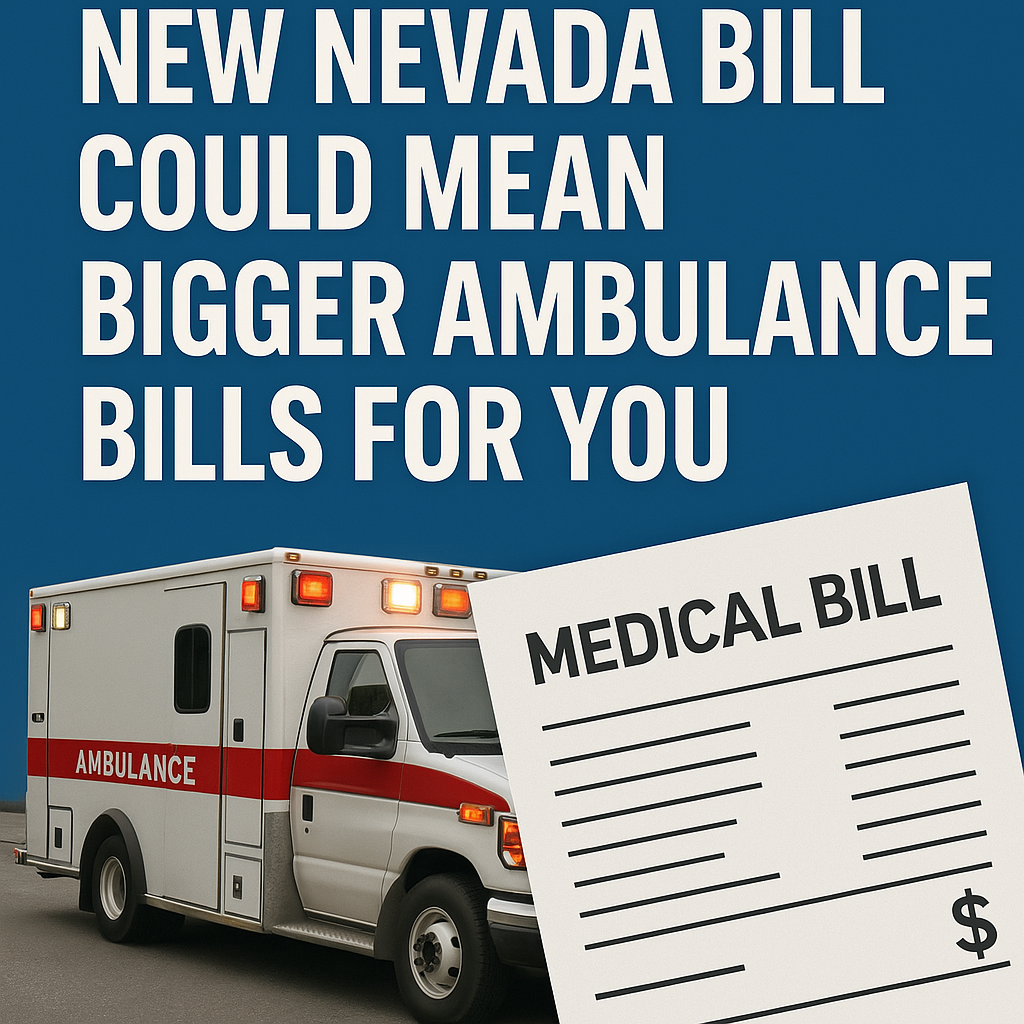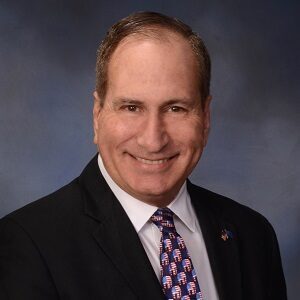(Sen. Jeff Stone) – Ever had to call an ambulance? If you have, you know those bills can be shocking. Now, a new bill in Nevada might make those rides even pricier for everyday folks.
Nevada lawmakers are looking at Senate Bill 424, or SB424 for short. This bill would make private ambulance companies pay up to 5.5% of their earnings to the state government. The money would mainly go toward Medicaid payments and some state health programs.
Have you ever had to take an ambulance ride? If so, you probably remember the bill—sometimes hundreds or even thousands of dollars for a trip that lasted only minutes.
Well, this new bill could make those rides even more expensive. If passed it would charge private ambulance companies a fee based on how much money they make from emergency calls. That money would then go into a government fund to boost Medicaid and other state health programs.
The problem is simple: when businesses face new costs, they don’t just absorb them—they pass them on to customers.
Let’s think about it like this: Imagine the state started charging your local pizza shop 5.5% of everything it earns. Do you think the owner would just take the hit? No way. They’d either raise prices or cut back somewhere. That’s how business works.
So while the bill claims to help Medicaid patients, regular working families who pay for private insurance or pay out-of-pocket will likely see higher ambulance bills.
It’s the same with ambulance companies. And since Medicaid patients are already covered by government reimbursements, the people most likely to see higher costs are those with private insurance or no insurance at all—regular working families who don’t get a break.
Supporters of the bill say it’s just a “fee,” not a tax. But let’s be real—it’s still money coming out of the pockets of local businesses. And when it walks and talks like a tax, it usually acts like one too.
And here’s something that should worry everyone: once the government starts charging this kind of fee, what stops them from raising it later or creating more fees for other businesses?
Conservatives are especially concerned that this is another case of government creeping into private industry. Once the state starts charging a revenue-based fee, what’s to stop it from expanding that fee, or creating more?
They also warn that the bill puts too much power in the hands of unelected health officials. The Department of Health and Human Services would decide how much the fee is, how it’s collected, and what penalties to give if companies don’t pay on time.
That’s a lot of control with not a lot of oversight.
Ambulance prices are already going up fast. According to a recent report, people with private insurance have seen ambulance costs rise over 20% in just five years.
According to a 2023 report by the Health Care Cost Institute, ambulance prices for people with private insurance have gone up over 20% in the last five years. Adding new fees on top of that isn’t likely to bring those numbers down.
To be fair, there are some arguments for the bill.
Supporters claim it will help ambulance companies stay in business by giving them better Medicaid payments. They say it could actually make ambulance companies more stable and reduce the chance of them going out of business.
And it’s true: Medicaid reimbursement rates are often low, and boosting those rates might help companies stay afloat. But conservatives point out there must be better ways to help low-income patients without making everyone else pay more.
But that’s not the full picture. If the goal is to help low-income patients, conservatives ask: why do it in a way that could make everyone else pay more?
When you cut through all the fancy language, SB 424 is pretty simple: it’s another way for the government to take more money from private businesses. And in the end, that means taking more money from you.
SB 424 might sound like it’s helping, but for everyday Nevadans, it could be another hit to the wallet. If ambulance companies get taxed, they’ll raise their prices. And if you’re not on Medicaid, you’re the one picking up the tab.
As one policy expert put it: “It’s a backdoor way to expand Medicaid and grow government programs. And when you tax private companies, that cost doesn’t just disappear—it gets passed to consumers.”
We’ve seen this movie before. And it gets more expensive every time. Put me down as opposed.
Mr. Stone is a Nevada state senator representing District 20 in Clark County. He’s also served as a California state senator, Temecula mayor and city council member, and member of the Riverside County Board of Supervisors. He was also the Western Regional Director for the U.S. Department of Labor during President Trump’s first term.




